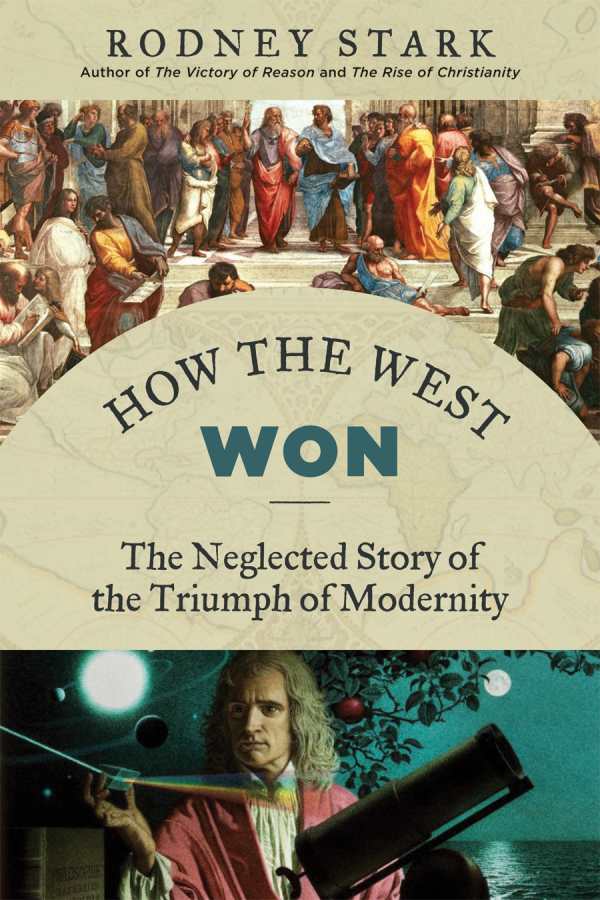How the West Won
The Neglected Story of the Triumph of Modernity
A focus on Western trends in social and scientific change over time dispels misconceptions about modernity.
This clarifying history book dispels misconceptions and asserts supremacy in an educated yet ethnocentric view of global events. Rodney Stark takes a culturally secure stance in How the West Won: The Neglected Story of the Triumph of Modernity, as he proposes from the first page that Western civilization really did change the world for the better. Allowing Westerners to take credit for nearly all the good that human beings enjoy in contemporary society may be a politically incorrect approach, but this has not dissuaded Stark from making countless valid statements. And while Stark acknowledges that the West did adopt certain technologies from Asia, he claims that “modernity is entirely the product of Western civilization.”
Divided into five parts, this exploration commences in 500 BC and ends after 1750 AD. From classical beginnings and the so-called Dark Ages to medieval transition and the dawn of modernity, the text delves deeply into everything from the trivial and mundane to the serious and life altering. It appears the author is setting out to prove that his historical theory is not merely the right one but the only one worth accepting. Though people who remain within a socially unbiased realm may find this book somewhat jarring, it is amply annotated and offers an extensive bibliography. In fact, every piece of this intricate analysis seems to stand on a solid foundation.
Addressing issues such as social change, trade, and technology, the book encompasses many aspects of a developing civilization. Expansionism, imperialism, and the Reformation lead into scientific discoveries and the Industrial Revolution. And as a show of contrasting theories, the author juxtaposes traditionally held Muslim beliefs with Christian concepts. “Science arose only in Christian Europe because only medieval Europeans believed that science was possible and desirable.” Stark’s reference to the church in this important declaration indicates more than a historical outlook. “The most fundamental key to the rise of Western civilization has been the dedication of so many of its most brilliant minds to the pursuit of knowledge. Not to illumination. Not to enlightenment. Not to wisdom. But to knowledge. And the basis for this commitment to knowledge was the Christian commitment to theology.”
A professor of social sciences at Baylor University, Rodney Stark is the prolific author of several history titles as well as other books. An interdisciplinary mix of grounded history subtly infused with ethnically propelled philosophy, How the West Won opens the door to further study and intelligent debate. Absorbing and often entertaining, this time-intensive text informs those unfamiliar with Stark’s academic domain and encourages evaluation of long-held beliefs.
Reviewed by
Julia Ann Charpentier
Disclosure: This article is not an endorsement, but a review. The publisher of this book provided free copies of the book to have their book reviewed by a professional reviewer. No fee was paid by the publisher for this review. Foreword Reviews only recommends books that we love. Foreword Magazine, Inc. is disclosing this in accordance with the Federal Trade Commission’s 16 CFR, Part 255.

